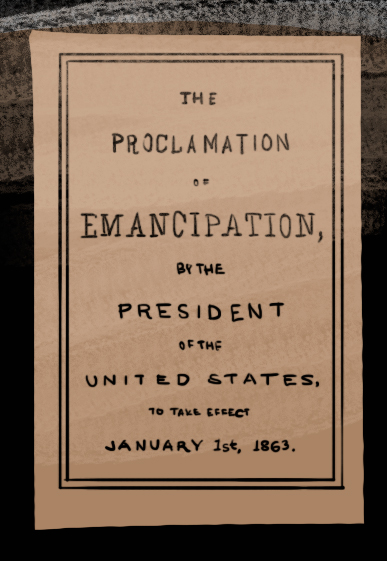The liberation of slaves in the public consciousness is closely connected with the name of US President Abraham Lincoln. Moreover, the Soviet historiography directly called him "a recognized abolitionist", to put it mildly, sinning against the truth.
Abolitionism is a social movement of the late XVIII-XIX centuries for the abolition of slavery in the United States (The term "abolitionism" originates from the Latin word «abolitio», which translates as "destruction" or "off").The first and more popular, led by William Lloyd Garrison, who plaid for the fight against slavery, without the use of force. The minority, led by Frederick Douglass, believe that it was necessary to control the use of armed force. Also, we shouldn’t forget about the attempts of revolts of abolitionists. For example, John Brown in 1859 made an unsuccessful armed attempt to free the slaves. The abolitionist movement was attended by many leaders of American culture, including writer Harriet Beecher Stowe.

Lincoln never thought of himself as about abolitionist, although advocated the abolition of slavery. Nevertheless, his position was not due to the warm love to black people, but because of his own bitter experience. As an ordinary worker, at the beginning of his career, he felt the hard way what it meant to compete with slave labor.
September 22, 1862, when troops of the southern states, after the Battle of Antietam, were forced to withdraw from Maryland, Lincoln felt that this was the right time for the publication of long-ripened solution: he issued a "Proclamation of Liberation", according to which all slaves who were in "breakaway states" after January 1, 1863, were declared free.
This geographical restriction was supposed to provide the loyalty of the population in the border states and in already occupied areas. It meant the concession to moderate voters in the North, for whom the abolition of slavery was not the motive for the war, but who understood that this move can facilitate the victory of the Union.
Part of the Radical Republicans criticized the document, justifying it by the fact that it freed the slaves where they currently could not be released - namely, in enemy territory, and did not release them where it was possible, namely in the occupied areas and border states which joined the Union. This is certainly accurate argument, however, it could not conceal the explosive force of a symbolic declaration that directly or indirectly brought freedom to almost three million slaves and undermined the rear of the South.
Proclamation, according to Wikipedia, revolutionized the war, which has become a struggle for the abolition of slavery, and the total change in the structure of the south social system. Especially radical step, which have become possible as a result of the publication of the proclamation, was a set of black Americans in the army of the northern states.
Lincoln was well aware that the release had a solid constitutional and legal framework. Only an amendment to the Constitution would finally decide the fate of slavery before the end of the war. Without this step, the slave owners were legally entitled to reclaim their "property" i.e., freed slaves, since the proclamation was valid only as a military measure. Lincoln managed to push through Congress the 13th Amendment, which abolished slavery definitively in the country. The Senate ratified it in April, and 3/4 of the states - by December 1865.
The beginning of a mass movement can be considered as 1830, when the American Anti-Slavery Society was founded, and also the newspaper «Liberator» was launched. Despite the fact that in the beginning abolitionists were guided by a desire for equality, to the 40th year, they had a pretty clear views on the existing order in society, and the two streams were formed at that time.